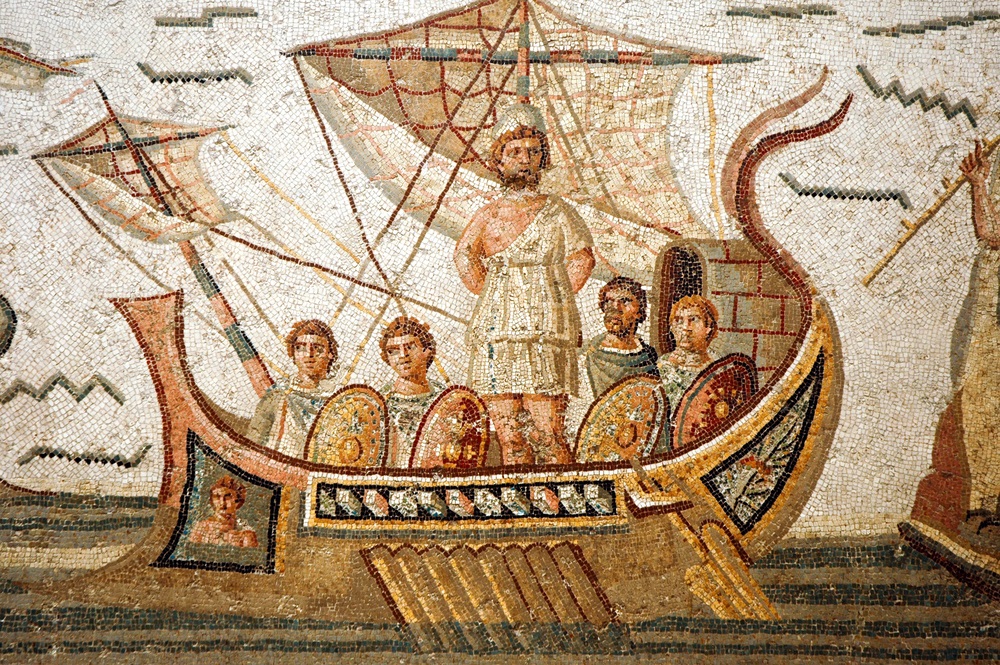An Economic Approach to Homer’s Odyssey: Part I

Modeling Homer's World
Economic Approaches to Homer
An economic approach to Homer's Odyssey is not about "what Homer really meant." Instead, it views Homer through preferences and constraints. It is a distortion that induces reductive prioritization, but it also brings out story elements.
This article explores the underlying economics and politics of The Odyssey through a comparative perspective on different polities visited by Odysseus.
Important:
- Use descriptive headings
- Break content into short, engaging paragraphs
- Include expert quotes where relevant
- Maintain proper HTML indentation
- Wrap all content in
tags
What is an Economic Approach to Homer?
The economic approach to human behavior is often interpreted as seeking wealth or economic selfishness. However, an economic approach to Homer focuses on modeling: dividing information into "claims about preferences" and "claims about prices and constraints."
This approach does not require that individuals be "rationally" in any instrumental sense, but rather as a means of generating and testing hypotheses.
Comparing Neoclassical Economic Models to Homer's World
Neoclassical economics makes certain assumptions:
- Individuals maximize utility rationally
- Individuals care about goods other than wealth
- Individuals are forward-looking and trade transparently
In contrast, Homer's Odyssey presents different assumptions:
- Individuals pursue quests rather than consumption
- Individuals deceive and are deceived; gains from trade are low, while risks are high
- Individuals seek out intoxication
Quests and the Poverty of the Material World
The most straightforward quest is Telemachus' pursuit of information about his father, but it also involves maturing and resisting suitors. The main quest of the story, however, is the Achaeans' struggle to recover Helen for Sparta and Menelaus, which has not been profitable in terms of material self-interest or physical security.
Odysseus' quest is more complex, as he seeks knowledge and variety through experiences rather than practical consequences. His participation in the Trojan War can be seen as a quest for victory and glory, while his later wanderings transform into a quest for knowledge and self-knowledge. While Odysseus expresses a desire to return home, he often lingers and explores the diverse worlds around him.
The Economics of Intoxication
During Homer's time, per capita incomes were low, but intoxicating substances were common. Intoxication was likely a significant phenomenon, with wine, poppy-related substances, and intoxicating plants available. The wine of that time may have been more potent than modern versions.
For Ulysses' men, the song of the Sirens is an ultimate temptation, promising blissful indifference at the expense of all other ends. However, Odysseus resists, recognizing the importance of keeping on moving.
References
- Ahrensdorf, Peter J. Homer on the Gods & Human Virtue: Creating the Foundations of Classical Civilization. Cambridge: Cambridge University Press, 2014.
- Alvis, John. Divine Purpose and Heroic Response in Homer and Virgil: The Political Plan of Zeus. Lanham, Maryland: Rowman & Littlefield Publishers, 1995.
- ...[Many additional references listed]
Footnotes
- [1] Available at the Online Library of Liberty: The Iliad and the Odyssey by Homer, translated by Thomas Hobbes.
- [2] Of course, this is not the first attempt to view Homer through a rational choice lens...
- [3] On the ancient Greek economy, including Mycenaean times, see Bresson (2016).
- [4] On the specific notion of "polis" in Homer, see Scully (1990) and also Raaflaub (2000).
- [5] Strikingly, Homer's own time was one of growing cross-cultural contact and "globalization,"...
- [6] See Ahrensdorf (2014, pp.206-209) for a further development of this theme, including the question of how much Odysseus blamed the men themselves for their disastrous fate.
- [7] On this theme, see also Alvis (1995, chapter two).
- [8] For this point on the Sirens, see Germain (1962, p.92).
- [9] You don't have to believe any one of those accounts as the "real story" of Odysseus or the real account of his motives...
- [10] See Ahrensdorf (2014, pp.216-223).
- [11] For a discussion of some related kinds of preferences, see Elster (1979, 1982). For a general treatment of "the irrational" in Greek thought, see Dodds (1971).
About the Author
Tyler Cowen is the Holbert L. Harris Chair of Economics at George Mason University and serves as chairman and faculty director of the Mercatus Center at George Mason University. With colleague Alex Tabarrok, Cowen is co-author of the popular economics blog Marginal Revolution and co-founder of the online educational platform Marginal Revolution University.